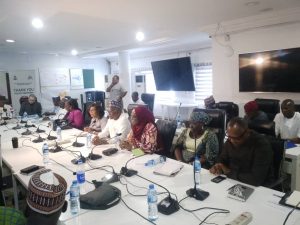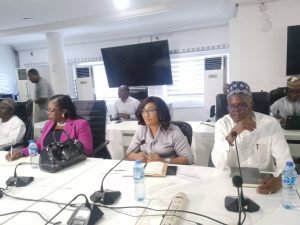On the occasion of World Polio Day, the Executive Director and CEO of the National Primary HealthCare Development Agency (NPHCDA), Dr. Muyi Aina, praised the efforts of international partners and local health workers in the fight against poliomyelitis.
Read also:World Polio Day: WHO Urges Renewed Commitment to Eradicate Polio
He noted the significant contributions made by UNICEF, the European Union, and other UN agencies to Nigeria’s health sector, particularly in the battle to eradicate all forms of polio in the country.
Poliomyelitis, a crippling and life-threatening disease that primarily affects young children, has been a major public health challenge in Nigeria.
According to Dr. Aina, although the country has successfully eradicated the wild poliovirus, the current challenge is the circulating variant poliovirus 2 (CVPV2), which continues to pose a threat. “83 cases of CVPV2 have been recorded in 14 states this year, with a majority involving acute loose paralysis.
Despite a 35% reduction in cases compared to the previous year, Dr. Aina stressed that the fight is far from over. “Zero is the ideal number,” he emphasized, highlighting that a reduction alone is not enough.
“The NPHCDA is implementing innovative strategies such as the Identify, Enumerate, and Vaccinate intervention, which has already digitally mapped and reached over 900,000 children across 14 states, ensuring they are vaccinated against the virus”. He said.
Dr. Aina also acknowledged the role of the media and community leaders in combating vaccine hesitancy, which remains a significant barrier to achieving full immunization coverage.
He called on the media to continue raising awareness and dispelling misinformation about vaccines, while urging traditional and religious leaders to strengthen their support in reaching unvaccinated communities.

As Nigeria moves towards polio eradication, Dr. Aina reminded all stakeholders, government bodies, healthcare providers, and development partners of the critical importance of sustained efforts.
“Large-scale vaccination campaigns are planned across 20 states, synchronized with cross-border initiatives, to prevent the virus’s spread in high-risk areas, in addition to polio, Nigeria’s progress in other vaccination programs, such as the introduction of the Human Papillomavirus (HPV) vaccine, which has reached over 12 million girls.
He praised the federal government’s commitment to health care reforms, particularly the revitalization of Primary Health Centres (PHCs) across the country, to ensure equitable access to quality health services for all Nigerians.
Speaking during the briefing, the Health Manager Immunization UNICEF Dr. Shaikh Kabir reaffirmed the organization’s dedication to eradicating polio in Nigeria and globally.
Dr. Kabir emphasized the pivotal role UNICEF plays as a founding member of the Global Polio Eradication Initiative (GPEI). “Since the resolution passed in 1988 at the World Health Assembly, eradicating polio has remained our foremost priority”. He said.
Dr. Kabir highlighted the contributions of grassroots mobilizers, health workers, and traditional leaders, noting, “Their tireless efforts are the backbone of our fight against this devastating virus.”
Dr. Kabir also honored the sacrifices of those who lost their lives in the line of duty, including vaccinators, health workers, and logisticians. “We must remember and honor those who have paid the ultimate price,those who were brutally attacked, lost their lives in accidents, or were abducted while carrying out their duties,” he remarked.
Despite recent outbreaks, he stressed the need to strengthen Nigeria’s health systems and routine immunization to prevent further spread of the virus and other diseases.
The World Health Organization (WHO) Country Representative, Nigeria Dr. Kazadi Molumbo reiterated its commitment to the global effort of eradicating polio. “Over the past 35 years, the Global Polio Eradication Initiative (GPEI) has made significant strides in the fight against the disease”.
“Thanks to these collective efforts, more than 20 million people are walking today who would otherwise have been paralyzed by polio,” said the WHO representative, acknowledging the progress made across five of the six WHO regions, including the African Region.

Dr. Molumbo highlighted ongoing challenges, particularly in conflict zones such as Gaza, Sudan, and Yemen, where polio transmission persists due to weakened health systems. “The transmission of polio in conflict-affected areas is a stark reminder that where conflict debilitates health and sanitation systems, polio will inevitably appear unless we eradicate all forms of the virus”. He said.
The event also recognized the efforts of volunteers, community workers, and leaders who have played crucial roles in fighting the virus, with a 38% decrease in circulating variant poliovirus type 2 cases in Nigeria between 2023 and 2024.
Dr. Molumbo called for renewed commitment at all levels to reach unvaccinated children and ensure complete immunization coverage.
“The only reason why the polio virus continues to thrive is our inability to vaccinate the remaining under-vaccinated children in our communities. The vaccine is safe and effective, and we must ensure every child is protected,” he urged, reaffirming WHO’s dedication to supporting polio eradication efforts globally.


Comments are closed.